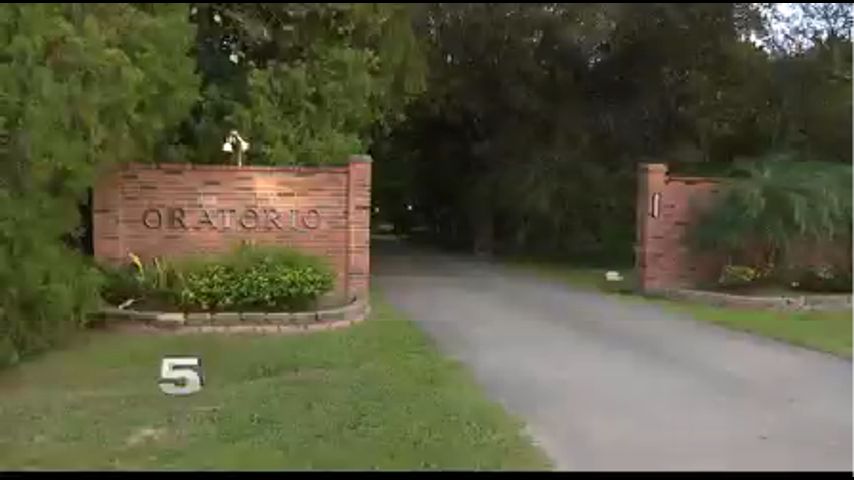Government Gains Access to Pharr Oratory
UPDATE (5 p.m.): The government now has access to the property of the Pharr Oratory.
The government will be able to conduct a land survey, which was opposed by the oratory.
The government seeks to acquire the levee on the property for border infrastructure construction.
The agreement filed in federal court states the government has access to the land for a year.
---------
PHARR – A federal judge just granted the government permission to conduct a survey elsewhere in the Rio Grande Valley. Landowners are against it.
A quiet chapel tucked away behind a canopy of trees and veil of vines may be unknown to some who live in the area of south Pharr.
Border Patrol considers it a well-traversed road by those coming from the other side of the Rio Grande.
That's how the Pharr Oratory of St. Philip Neri of Pontifical Rite's name came to be inked on a lawsuit – a rare one at that explains attorney David Garza.
"We may be what's called in the law a case of first impression where we're raising this as a defense for this particular kind of take for the first time," he says.
Garza represents the oratory in this law condemnation case.
The oratory's southern property line is flanked by an irrigation canal and a levee.
The government wishes to explore its undefined borders and claims it needs the land south of the levee for border infrastructure construction.
That could include "roads, fencing, vehicle barriers, security lighting, cameras, sensors, and related structures," according to the complaint.
The government wants the right to inspect 26-acres. Garza believes federal authorities are only interested in an acre laying lengthwise at the edge of the southern end of the property.
Priests who live here among the books and trees and veil of vines conduct mass on Sundays.
They're concerned about the impact of this decision. Garza said, "It could certainly have a chilling effect on people wanting to go there, there's a big wall or a fence there."
Garza who has fought land condemnation cases in the last federal rounds ten years ago says this is different.
It's not about money, taking the land, even a sliver of it would infringe on freedom of religion, he contends.
They're invoking the Religious Freedom Restoration Act.
The judge sided with the government on the survey.
Both sides are working on the terms of that agreement.
Garza believes the government is looking at old property maps.
Best case scenario, the property in question is not owned by the oratory and the case will stop there. If they do own that land in dispute, they'll have to find the best legal argument. Garza's looking for precedent.
Garza says, "I'm still looking for a needle in the haystack. There haven't been many border wall cases."
He is preparing for what could be a long legal battle that could redefine this land, the oratory, and future cases.
Garza also represents the Diocese of Brownsville in the La Lomita Chapel case.





